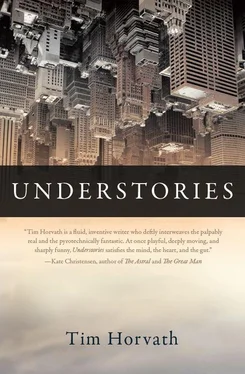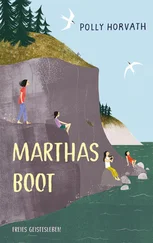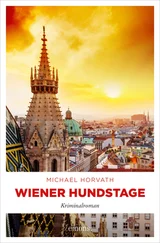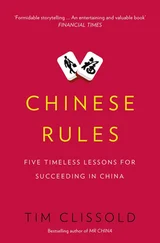The book, Spelos: An Ode to Caves, had been available at the local store for a while, propped above the handwritten sign proudly proclaiming “Local Author Gus Pardo!!!!!!!” but the copy there never budged more than an inch or two. It got slightly dog-eared over the years, its pages turning creamy and mottled — when he self-published, my father did not know to use paper that would withstand time and other elements. The real moment it hit me with desolation was when I held it aloft, once, and noted a fresh smudge. That fingerprint looked, at a certain angle, like slime creeping its way out of the cave entrance that graced the cover. When I saw the smeared copy, I thought about buying it at the local store, but somehow it seemed like it would cause too much commotion in the small town where we lived — Sam, the guy who ran the bookstore, knew my dad well, and would surely ask him, “Hey, why’s your son buying your book, Gus?”
But the copy of Spelos that was housed in our nation’s capital was another story. I remember visiting Washington, D.C. with the family, when Aidan was thirteen and I sixteen, and making our way to the glorious library amid the other palatial buildings, as they seemed to my decidedly midwestern sensibility. I remember spending much of the three days we were there bedazzled, in awe of dimensions, buildings that appeared to have been stretched out like the limousines we saw on the streets, and brightness that seemed to dance off every surface. My mother had to yell out my name a couple of times in intersections, and Aidan premiered the “jaywalking” jokes that immediately entered the permanent database of obnoxious family references.
Our stop at the Library of Congress was surely one of the highlights of that trip. Our father kept announcing that there were “thousands of miles of books” there, adding, “That’s more than the distance that we traveled to get here.” I remember my mother shaking her head — she really wanted more face time with the seats of power: the Capitol, the White House, the Washington Monument; for her, the LC was a glorious architectural specimen, but, at the end of the day, just a library. My father’s insistence that it really was “the library of Congress” seemed to carry some appeal for her — she thought she might spot a congressperson. Once there, we got the needed special permission to go back into the stacks, as Aidan and I were technically too young. My dad even half-joked with the guard that they had better reserve a slot, “yea wide and yea high,” for the atlas he was eventually to finish; he actually, as I recall, apologized for making them wait.
Finally, after various delays, we located the book. Unlike the much-handled version in the bookstore back home, this copy had had its cover stripped, and the black spine declaring the title in gold lettering seemed more hardened, as though it had gone off to join the military and been forced to toughen up, gather an austere dignity. And the very cataloging itself was revelatory for me. The transition between Dewey and LC is a conversion accomplished in seconds with a computer program nowadays, but I can still remember marveling at the unfamiliar codes on the books as we strode through, which seemed like intimations of an adult world I could barely glimpse, tantalizingly and dauntingly complicated.
Of course, we had always had copies sitting around in the house — since it was self-published, he got more than the customary ten copies or whatever it is that an author receives. Oddly enough, while over the years I’d opened it many times, and read many pages, I’d never read the book straight through from start to finish. I knew it was about caves, of course, and that it was about more than caves, too. That in its 137 pages, my father had captured a passion for going into caves that had flourished in the years before I’d been born. That he’d mused on their natural history, their flora and fauna, their dankness and darkness, their labyrinthine souls. He’d touched on sleep cycles, prehistoric aesthetics, philosophy, oracles, blindness. (His eclecticism and the solipsism of self-published work, less common then, threw the catalogers, Deweyan and LC alike, for a loop; I knew, based on my dips in, that they’d probably gotten it wrong.) He’d gotten a cult following among spelunkers, a cult if ever there was one, judging by the occasional fan mail that he received, sometimes bearing the name of a cave as its return address (“Funny guy, this one!”), which he would share with us boomingly over the dinner table. “This guy, I’ve got to get him to do a section of The Atlas ,” he’d say on occasion if he got a particularly eccentric letter — let’s say one featuring a handwritten map of a set of caverns.
It was written when I was an infant, and so from the time I was young it was sort of always around. But quickly I’d passed well beyond the point where it had been assumed that we had all read it — I know Aidan lapped me in this regard — and so as often as I urged myself to do so, it seemed that the other, more urgent reading material kept piling up. First there was high school, then college, where I studied literature, which certainly didn’t leave me a whole lot of time to catch up on such back reading. And then, on to a library science degree, where the reading was much more technical and technologically oriented than anything I’d encountered before, demanding a whole new way of reading. It was the beginning of the heyday of the Internet; suddenly, bibliophilia was just another trait among many that qualified one to be a top-notch librarian, and even those of us who put books first had to embrace “information management.”
I was familiar enough with the book that I could carry on the small talk that usually circulated around the book — it wasn’t as though spelunkers were making pilgrimages to Esoch, Michigan, where I got my first library job, or anything of that nature. Mostly, friends and relatives would make reference to it, and occasionally a woman whom I was seeing. Somehow, none of them ever got past the first question, “What’s it about?” My stock answer—“It’s all about caves. . it’s hard to describe, though, because it’s not just about the actual physical caves”—was more than sufficient for them. Part of me, perhaps the part that had always yearned to be a fiction writer instead of a librarian who nonetheless trafficked so often in fictions, would itch to say more, to make it up, to conjure a version of what I thought the book was about, based on my skimmings and perusals over the years. Another part of me, though, was relieved that I didn’t have to lie about something so fundamental to how I thought about my family. Not even the biggest wiseass I dated, Erica — six months — would press me: “Well, what’s the first sentence, at least?” No, come to think of it, Erica would have been more ruthless still, would have asked about the last sentence. Glad she never got around to it.
At the Esoch Library, I put in an order for a copy right away. The head librarian was more than glad to oblige. “Well, of course, it’s your father’s book,” she said, positively tickled to have the son of a bona fide local author join the staff. Later, I moved to Biltchrist and ordered a copy there, too. There, Lucy, the reference librarian, ruled the nonfiction orders with an iron fist. She was less than enthusiastic about ordering a copy, less game to do so on a whim, suspicious that I was trying to slip something past her. A bulldog of a woman, she’d intimidated me from day one.
“Are there any reviews of it I could read?” she inquired.
I thought about the reviews I knew of. One in the local paper in Esoch, where I’d grown up, written by a guy who was posed in several fishing photos on my dad’s walls. I knew him as the shorter guy, in height somewhere between my father and the dangling fish. A couple of write-ups in spelunking magazines, which were, believe it or not, obscure. Not a whimper in Publishers Weekly or Library Journal or Book Trade, the sources that Lucy relied upon with an almost religious fervor, and that we were expected to swear by also. Not even a blurb in Outside or anywhere with journalistic cachet or popular standing.
Читать дальше












